Snøhetta entices bees into Oslo with honey-coloured Vulkan Beehives
Norwegian architecture studio Snøhetta has designed a series of wooden hives for the roof of an Oslo food court to encourage bees to take up residence in the city (+ slideshow).
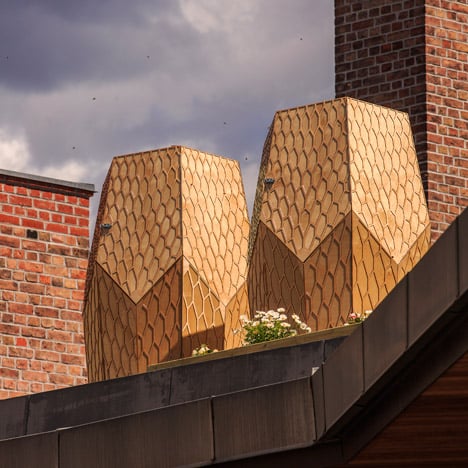
Snøhetta installed the Vulkan Beehive project at the Norwegian capital's Mathallen food and dance centre.
"Bees are among the world's most important food suppliers," said Snøhetta. "One third of the world's food production is depending on pollination, where bees play the largest role."
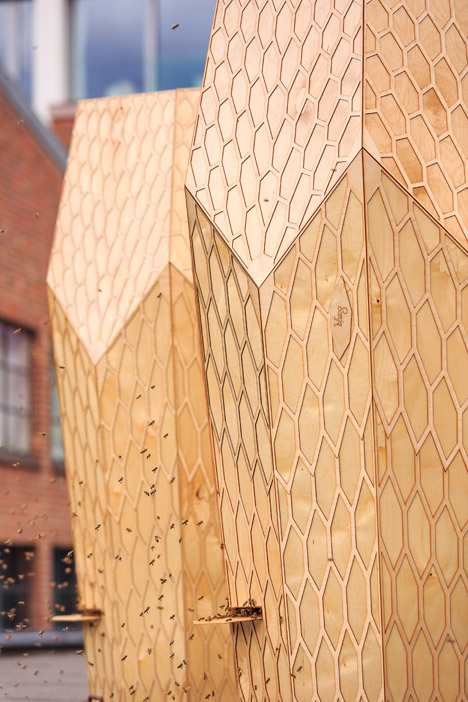
Collaborating with beekeeper Heier Du Rietz, the architects designed the pair of wooden structures to house 160,000 bees.
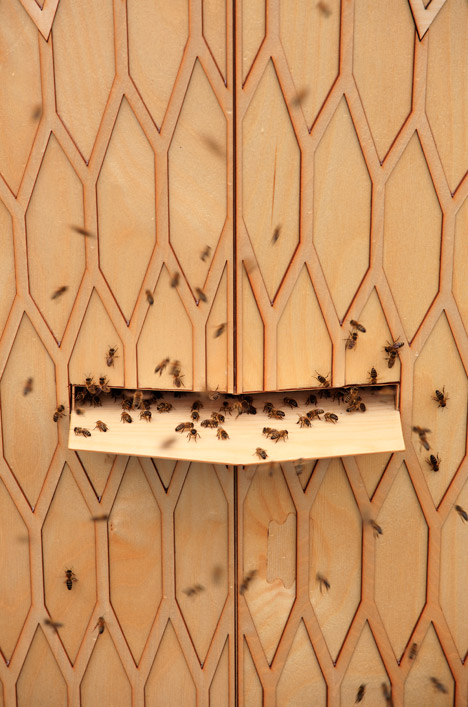
A pattern of distorted hexagons covers each hive, with six sides around the top that split into twelve sections around the bottom.
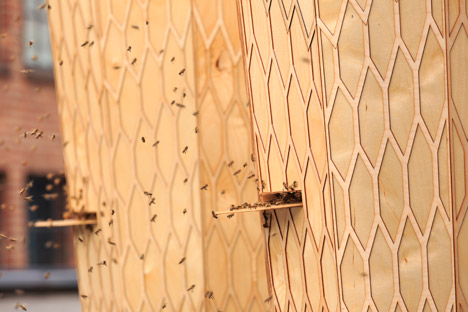
A zig-zagging line is created where the panels meet at the widest point around the middle.
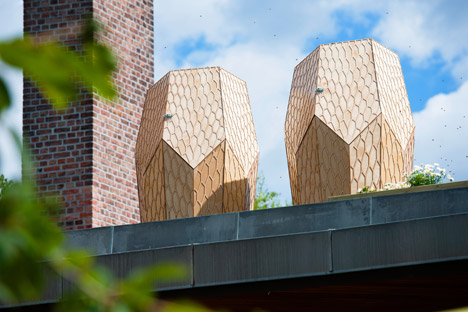
"The natural honeycomb geometry was our inspiration for the form and pattern," said the architects. "Two intersecting hexagonal volumes create the form, which were then adjusted in height and width to fit with the need of the beekeeper."
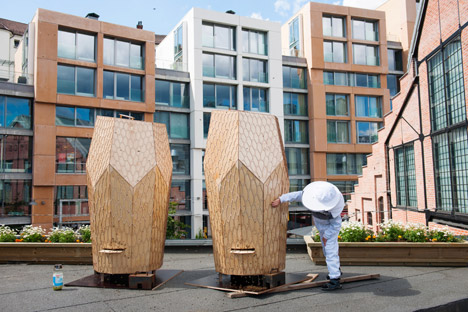
"Using a light-coloured wood with a finish that is honey in tone was also a relationship that we wanted to create and present."
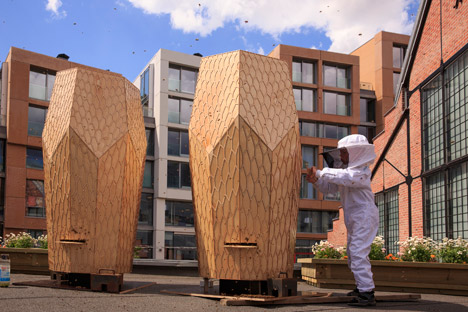
The bees enter through a small slot towards the base of each hive, where a flat lip for landing extends from the gap.
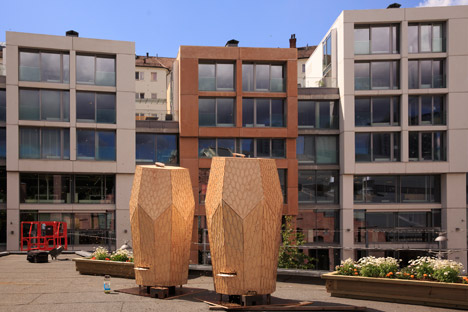
The insects are able to find pollen and water at a nearby riverside park and other green spaces in the surrounding area.
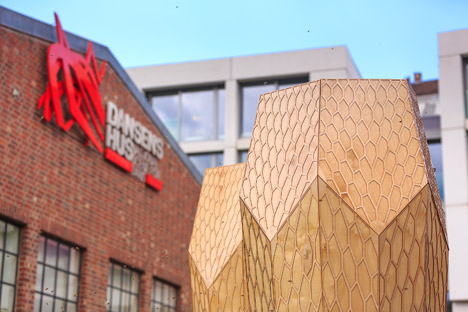
"By creating these beehives, we bring more bees to the city," the architects said. "We want to give visitors information on how they can contribute to the environment and create involvement around the bees."
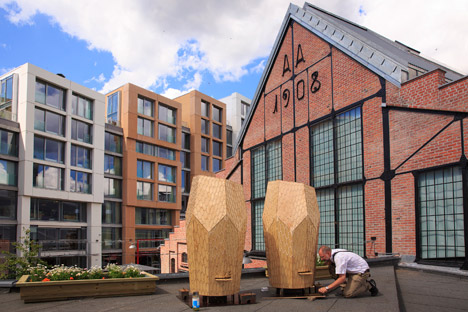
Honey collected from the hives has been sold in the food hall since the project was unveiled in June.
Photography is by Morten Brakestad, unless otherwise stated.